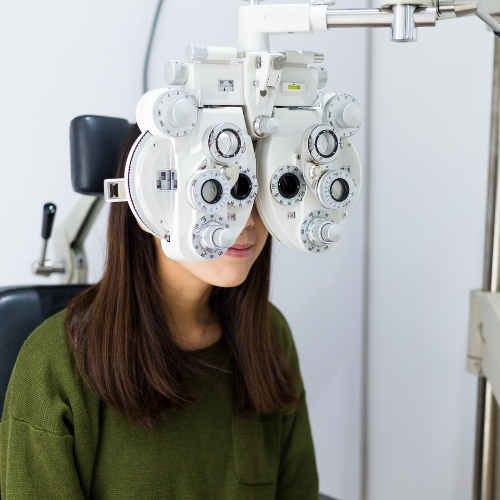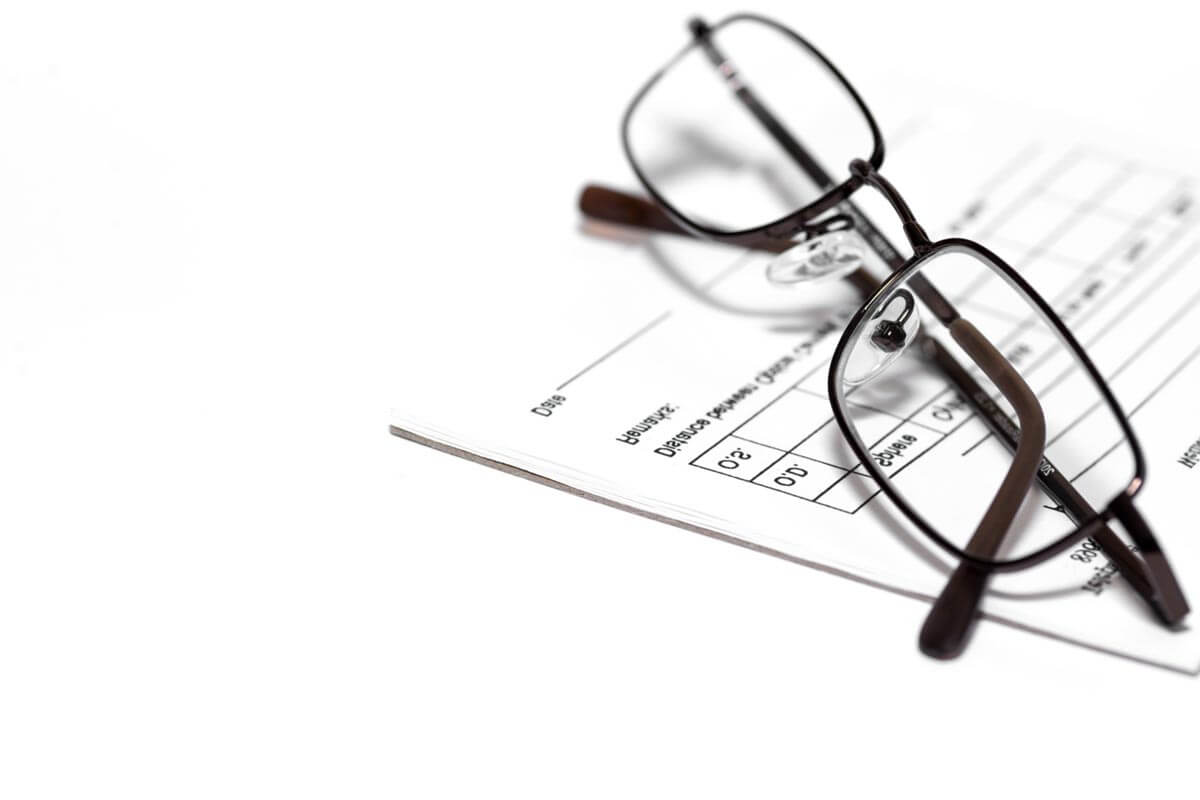
Comprehensive Eye Exam
A comprehensive eye examination is crucial for maintaining healthy vision and detecting potential eye problems early. Whether you’re experiencing changes in your vision or just keeping up with routine care, regular eye exams can help protect your eyesight and overall well-being.
What is a Comprehensive Eye Examination?
A comprehensive eye exam goes beyond a basic vision screening. It involves a series of tests to evaluate not just your vision clarity but also the health of your eyes. Our exams are thorough and designed to catch signs of eye diseases, even before symptoms appear.
What to Expect During Your Eye Exam:
1. Vision Testing: Measuring vision on an eye chart tells us how your eyes are performing. Reduced vision can indicate that you need vision correction, such as glasses or contact lenses, or that you have a eye condition that is affecting the vision.
2. Refraction Test: This test allows us to determine the exact prescription strength for glasses or contact lenses, and tells us the full visual potential of the eyes. This is an important test even if you don’t wear glasses.
3. Eye Muscle Function Test: To check the movement of your eyes and ensure that the muscles work together properly.
4. Pupil Response Test: We’ll shine light into your eyes to see how your pupils react, which can reveal neurological issues.
5. Visual Field Test: This checks your peripheral (side) vision to detect potential blind spots or vision loss that may indicate conditions like glaucoma. This is also an essential test for driving.
6.Intraocular Pressure Measurement: Also known as tonometry, this test checks for signs of glaucoma by measuring the pressure inside your eyes.
7. Slit-Lamp Exam: Using a special microscope, we’ll examine the structures of your eyes (cornea, lens, retina, etc.) for any signs of eye disease, such as cataracts, macular degeneration, or other issues.
8. Dilated Eye Exam: We may dilate your pupils to get a better look at the back of your eyes, including the retina and optic nerve, particularly if your vision is poor or we suspect that there may be eye disease present.
Why Are Regular Eye Exams Important?
• Early Detection of Eye Diseases: Many serious eye conditions, such as glaucoma, cataracts, and macular degeneration, develop slowly and without noticeable symptoms. Regular eye exams can catch these conditions early, before significant vision loss occurs.
• Overall Health Check: Your eyes can reveal signs of health issues like diabetes, high blood pressure, and even certain cancers. A comprehensive eye exam can serve as a window into your general health.
• Vision Correction: If you need glasses or contact lenses, an eye exam will determine the most accurate prescription to help you see clearly.
How Often Should You Get an Eye Exam?
• Adults (18–60 years): Every 1–2 years if you wear glasses or contacts, or every 2 years if you don’t have vision problems.
• Seniors (60+ years): Our optometrists will often recommend an annual eye exam as age-related eye conditions become more common.
• Children (3–18 years): Every year, as part of routine health care.
At Grant & Douglas, our comprehensive eye examinations are designed to provide you with a full understanding of your eye health. Whether you need a new prescription or early detection of potential issues, we are here to help you maintain clear vision and healthy eyes. Schedule your exam today and take the first step toward better eye health!
Schedule an eye exam today
Grant and Douglas are committed to delivering optometry excellence every day.


